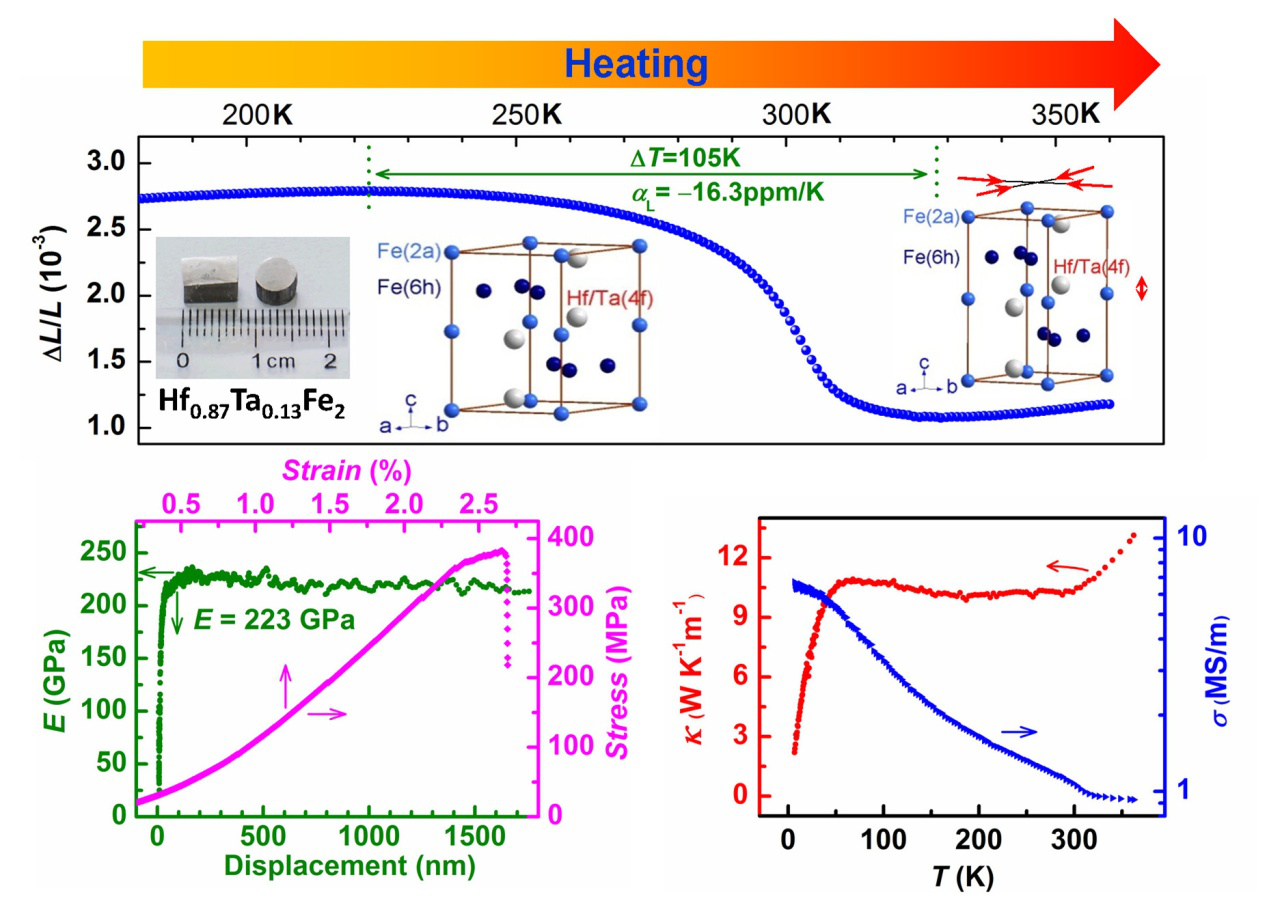
Chinese scientist TONG Peng and his team in Institute of Solid State Physics, Hefei Institutes of Physical Science reported the good negative thermal expansion (or NTE) properties together with high thermal and mechanical properties in Laves phase Hf1-xTaxFe2 compounds, which may provide a new material to modern industry.
All the time, it is strongly desired to precisely control the coefficient of thermal expansion (CTE) of devices or components in rapidly developing modern industries.
The NTE materials, shrinking with increasing temperature, can be potentially used to compensate for positive thermal expansion (or PTE) or to even realize zero thermal expansion by forming composite.
Good mechanical properties and large thermal conductivity are especially demanded for NTE materials in order to design and fabricate composites with high thermal stability and reliability.
Despite many years of effort, materials exhibiting combined good NTE, high thermal and mechanical properties are still rare.
By modifying the Ta concentration in Lave phase compounds Hf1-xTaxFe2 , the team achieved an excellent NTE performance in Hf0.87Ta0.13Fe2, a linear CTE (αL) = -16.3 ppm/K over a large temperature of 105 K (222 K - 327 K).
Besides the good mechanical properties, including high compressive strength (~ 400 MPa), Young’s modulus (220GPa) and hardness (882HV), those compounds have high thermal and electrical conductivities superior to other metallic NTE materials.
The present NTE materials may have wide applications as PTE compensators in the fields of microelectronics, spatial applications and cryogenic engineering.

Fig.1. Temperature dependent thermal expansion curve, thermal/electrical conductivities, compressive strength and Young's modulus. (Image By TONG Peng)

86-10-68597521 (day)
86-10-68597289 (night)

52 Sanlihe Rd., Xicheng District,
Beijing, China (100864)

